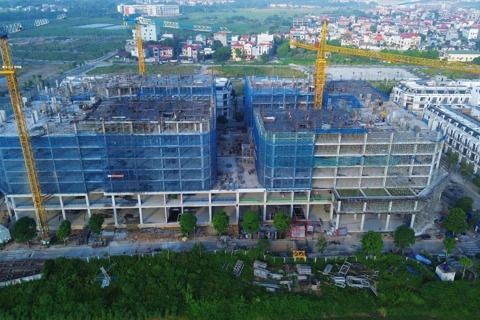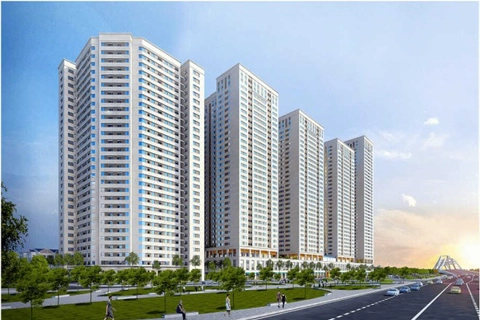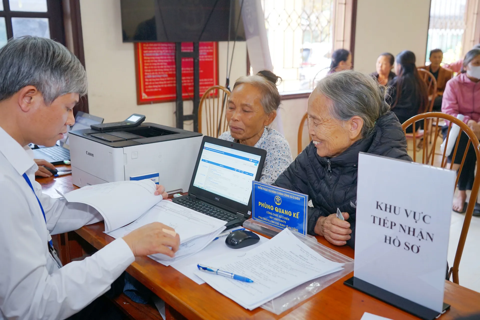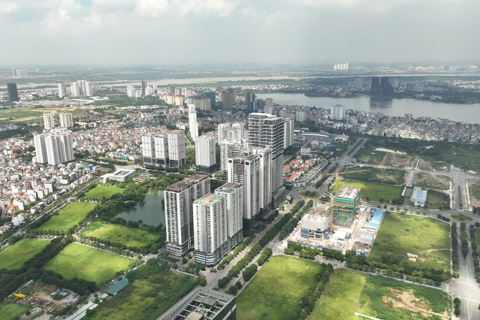Property
VN to rank third among new wealth builders
Apr 03, 2015 / 07:35 PM
Viet Nam is forecast to rank third out of 32 nations hosting new wealth builders (NWBs) for the 2014-20 period, according to a survey by The Economist magazine.
NWBs are households with financial assets of between US$100,000 and $2 million, according to the survey released late March by the magazine's Economist Intelligence Unit (EIU).
According to the report, NWBs today have $88 trillion in global assets and are expected to grow at a compound annual growth rate of 7.1 per cent to reach $145 trillion by 2020.
Since 2010, the group has grown faster than any other wealth sector—including high net worth or mass market segments—and is forecast to grow even faster in the next decade.
Viet Nam is expected to have nearly 350 NWBs in the next five years, up 35 per cent from the figure in 2014. They will have estimated total financial assets of more than $68 million, equivalent to $196,000 each, according to the study.
The EIU also predicts robust economic expansion in Viet Nam through 2018. Credit is awarded to ensure a steady increase in private consumption growth, rooted partly in stable price conditions and in accelerating wage growth. Conditions favorable to NWBs in Viet Nam should prevail for the next two decades, the EIU predicted.
However, the number of rich people in Viet Nam still lags behind that of other countries in the region such as China, with more than 166,000 rich people; India, with 4,900 rich people; and Thailand, with nearly 2,200 rich people.
Looking at growth rates in NWB households around the world, it is predicted that Latin America will outpace all other regions, followed closely by the Asia Pacific region.
In the projected average growth of NWB households through 2020, India takes the lead with 47 per cent, followed by Indonesia (41 per cent) and Viet Nam (35 per cent).
To obtain unique insight into this segment, the EIU conducted a research programme, sponsored by Citi, to determine the size of the NWB market and forecast its growth across 32 countries. Additionally, a global survey was conducted to find out more about the lifestyles, beliefs and core values of NWBs, while gleaning insights into their sources of financial counsel and investing habits.
According to the report, NWBs today have $88 trillion in global assets and are expected to grow at a compound annual growth rate of 7.1 per cent to reach $145 trillion by 2020.
Since 2010, the group has grown faster than any other wealth sector—including high net worth or mass market segments—and is forecast to grow even faster in the next decade.
Viet Nam is expected to have nearly 350 NWBs in the next five years, up 35 per cent from the figure in 2014. They will have estimated total financial assets of more than $68 million, equivalent to $196,000 each, according to the study.

Many Vietnamese people get richer from real estate business. Viet Nam is forecast to rank third among new wealth builders. - Photo dothi.net
|
However, the number of rich people in Viet Nam still lags behind that of other countries in the region such as China, with more than 166,000 rich people; India, with 4,900 rich people; and Thailand, with nearly 2,200 rich people.
Looking at growth rates in NWB households around the world, it is predicted that Latin America will outpace all other regions, followed closely by the Asia Pacific region.
In the projected average growth of NWB households through 2020, India takes the lead with 47 per cent, followed by Indonesia (41 per cent) and Viet Nam (35 per cent).
To obtain unique insight into this segment, the EIU conducted a research programme, sponsored by Citi, to determine the size of the NWB market and forecast its growth across 32 countries. Additionally, a global survey was conducted to find out more about the lifestyles, beliefs and core values of NWBs, while gleaning insights into their sources of financial counsel and investing habits.








